Nearly 1 out of every 5 employers use a tobacco surcharge on insurance, according to a SHRM Employee Benefits Report.
A tobacco surcharge or other form of financial incentive can help motivate people to take action who might not feel confident about quitting, or might not be motivated to quit TODAY. It can also guide a tobacco user to resources that are effective at increasing quit outcomes.
Though nearly 70% of smokers and 60% of e-cigarette users WANT to quit, many are not confident that they CAN quit. They lack the skills, knowledge and experience to quit. Out of 100 people trying to quit cold turkey, only 2-5 will succeed for longer than 6 months. Only 30% of those making quit attempts use evidence-based assistance.
Exposing tobacco users to a multifaceted program, like the EX Program, showcases HOW to successfully quit and gives them the tools and skills to be successful…when they are ready. Incentives help people overcome the hurdle of not knowing where to go for help, or what to do first (or this time).
Approximately 31% of employers offer a health insurance premium discount for participating in a wellness program. To help people quit tobacco, premium differentials are the primary incentive type used, and these incentives are tied to activities including enrollment, participation, and quitting outcomes.
What research shows about a tobacco surcharge on insurance
Here is a quick look into 2 things that research shows about quit-smoking incentives:
- Quit-smoking incentives can be a great way to encourage an already motivated person to make the decision to quit. A review of nearly three dozen studies found that incentives improve cessation rates when they are in place, and that their effectiveness is sustained even after incentives are no longer available.
- Incentives are effective at increasing engagement. Engagement with an evidence-based treatment improves quitting outcomes, and incentives are effective at increasing engagement with evidence-based treatment.
We see from our own data that incentives are effective at getting people to engage more fully with the quitting process. Our clients that offer some type of incentive enroll 3.5 times more of their eligible employees than clients that do not offer an incentive.
Further, those clients that provide an incentive for participating in different components of the program are much more successful at getting members to engage and use more of the program’s features.
In fact, our data indicates that clients offering an incentive for participating in multiple components of the program produce rates of engagement more than twice as high as those clients offering an enrollment-only incentive, or no incentive at all.
The EX Program qualifies as a reasonable alternative standard if you use an incentive or tobacco surcharge. Visit our Employers page to learn more.




